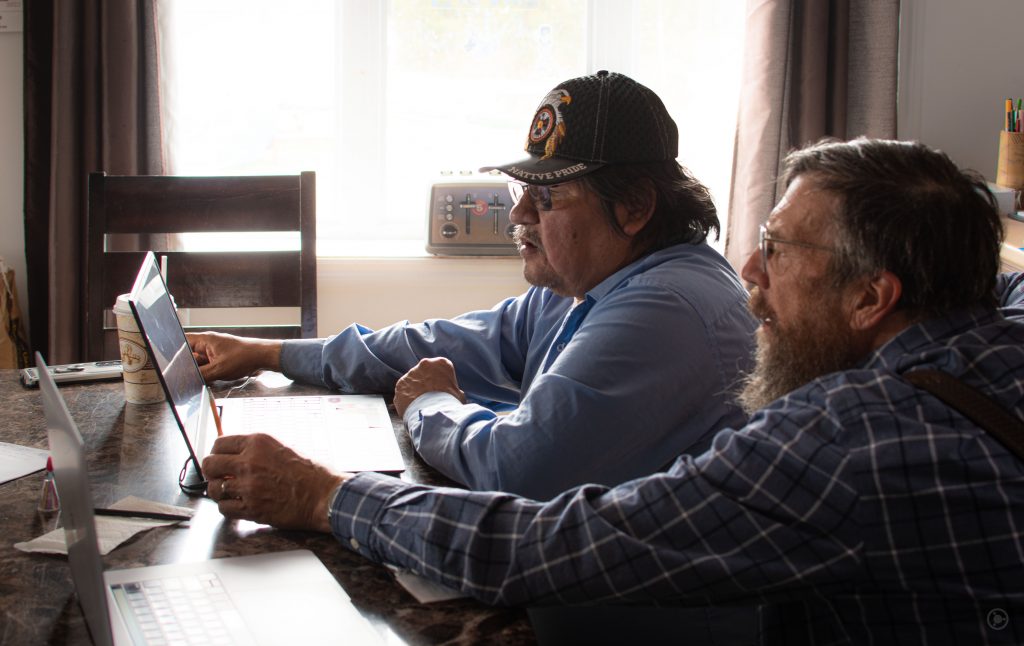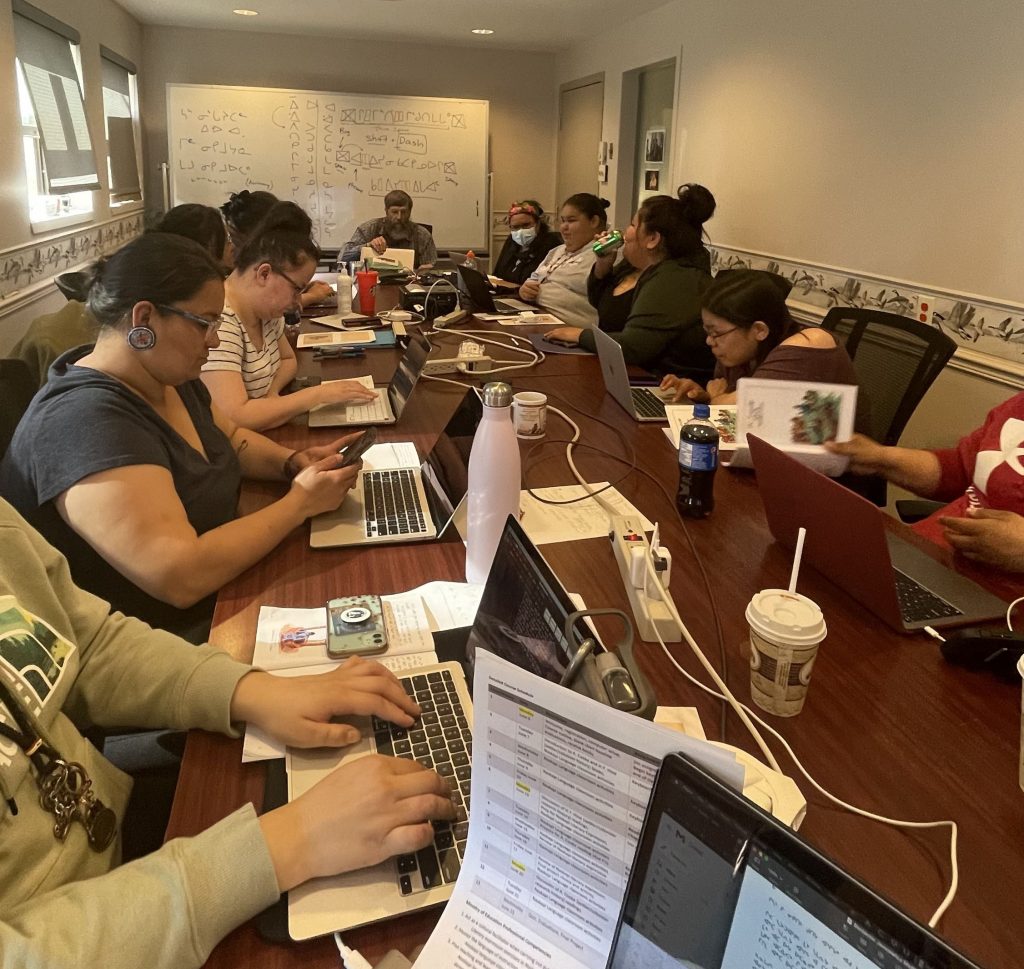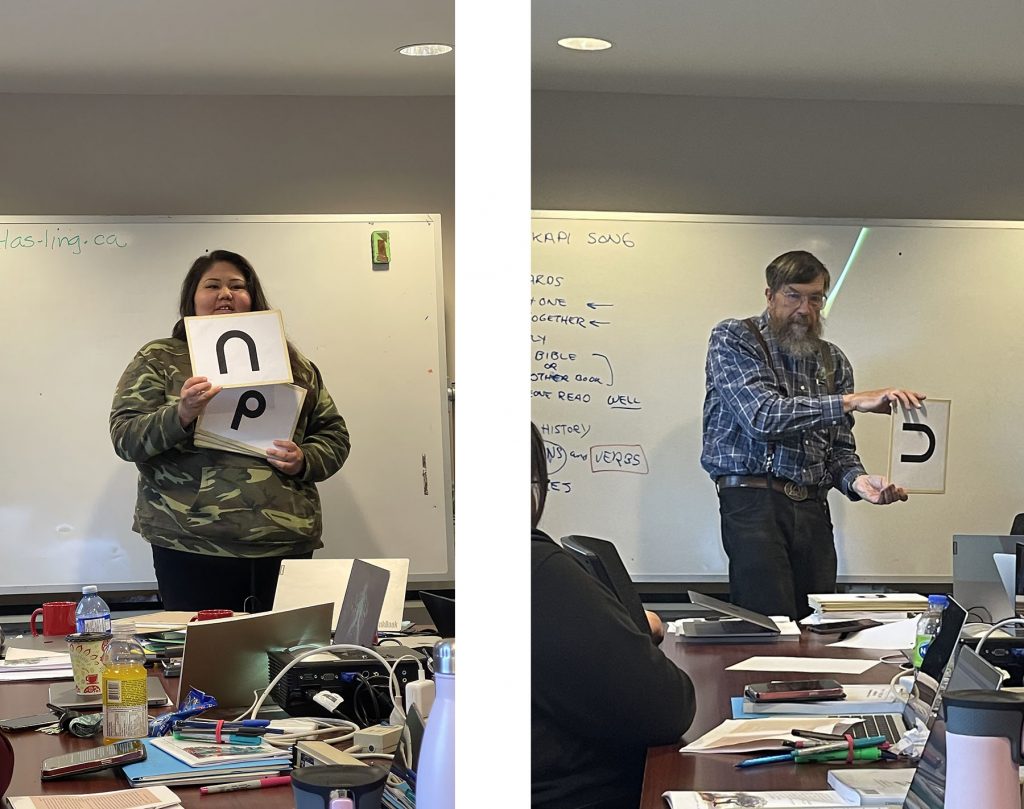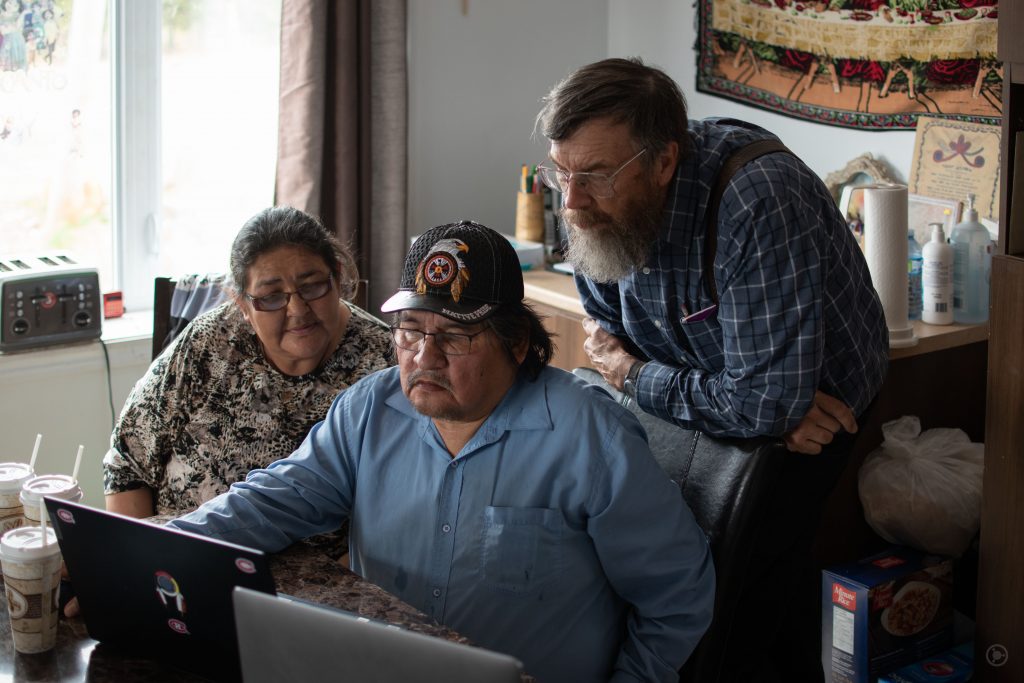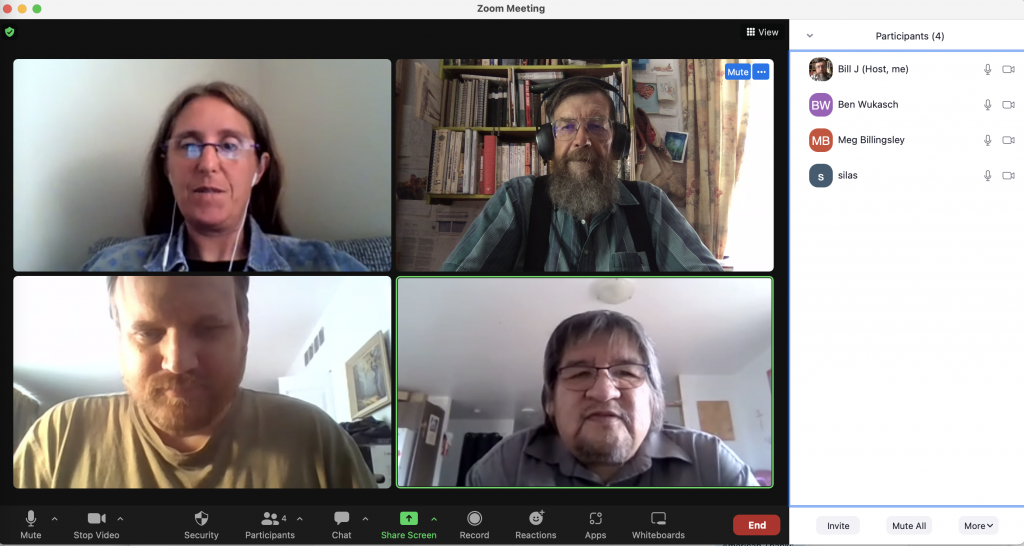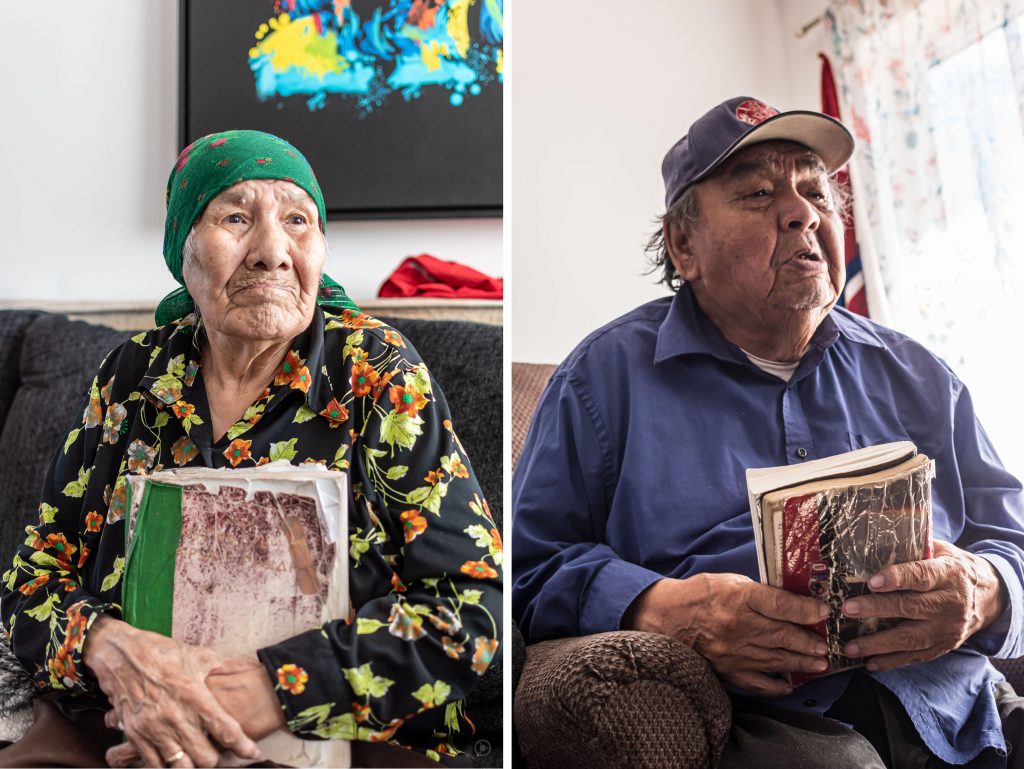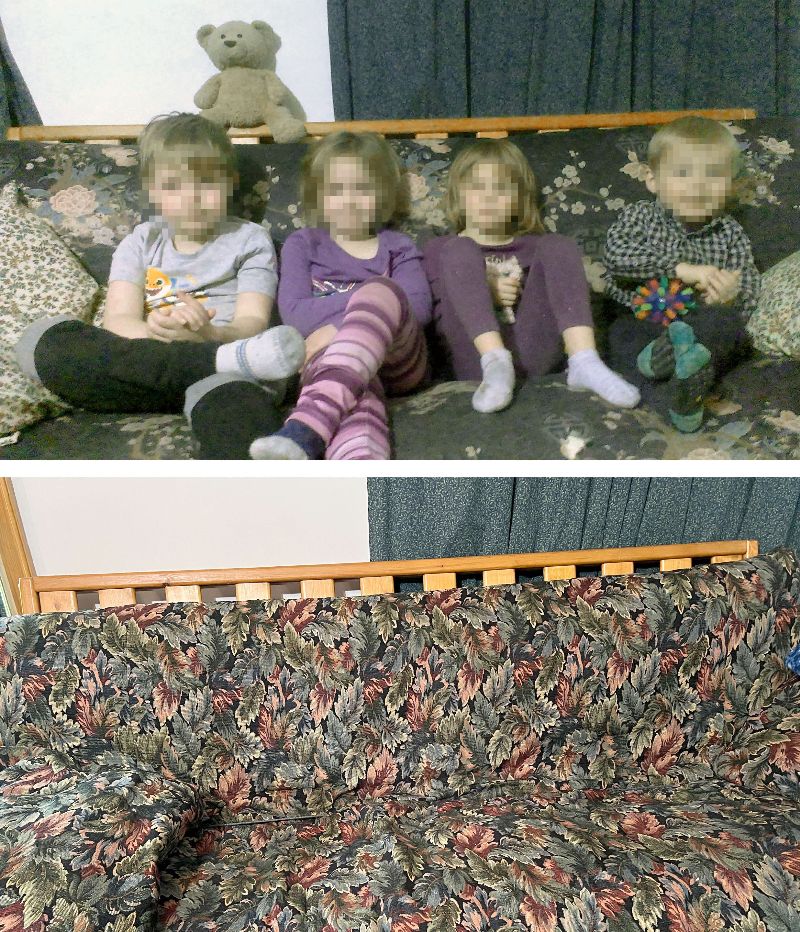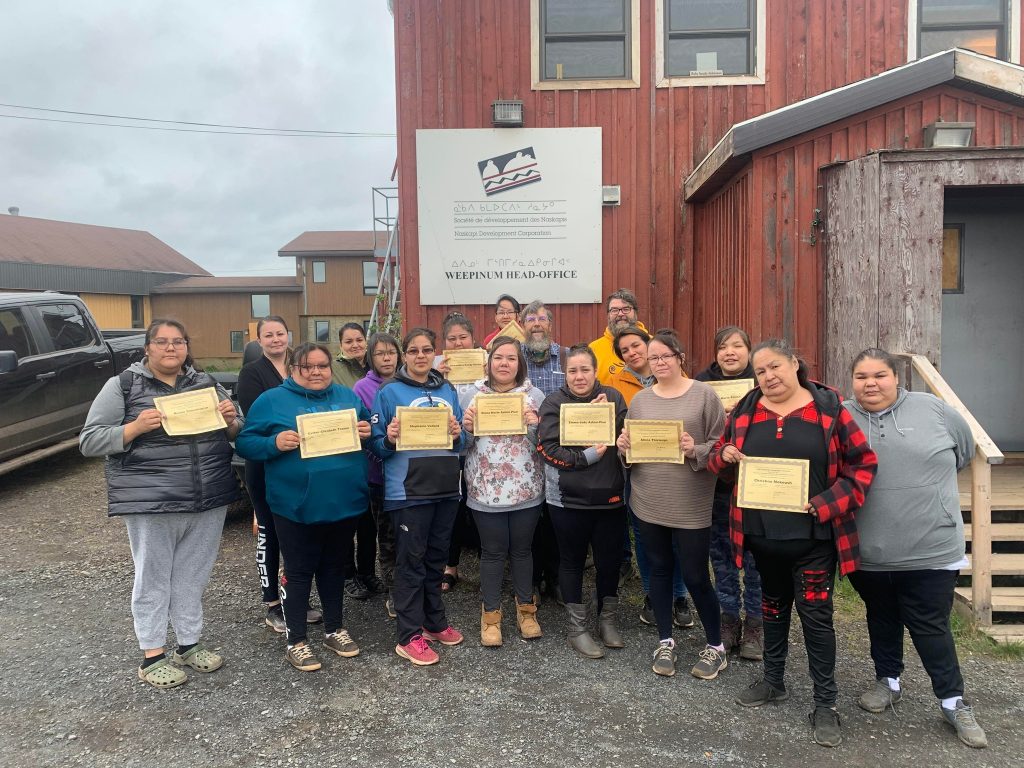Our Dear Partners,
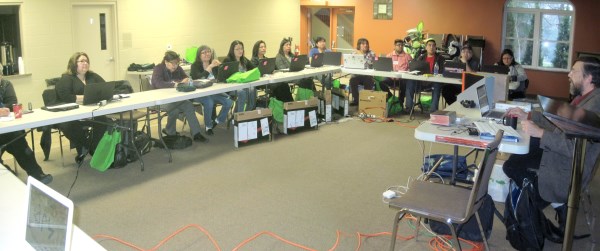 When the First Nations representatives and church leaders met with us in Prince Albert last June (click here for the story), they identified several priorities for the First Nations Bible Translation Capacity-Building Initiative. One of these priorities was to conduct a series of Mother Tongue Translator (MTT) Workshops to help the speakers of First Nations languages learn the skills that they need to be involved in Bible Translation and community language development.
When the First Nations representatives and church leaders met with us in Prince Albert last June (click here for the story), they identified several priorities for the First Nations Bible Translation Capacity-Building Initiative. One of these priorities was to conduct a series of Mother Tongue Translator (MTT) Workshops to help the speakers of First Nations languages learn the skills that they need to be involved in Bible Translation and community language development.
With coordination and assistance from our friends at the Canadian Bible Society translation office in Kitchener, Ontario, we planned and facilitated the 2015 Mother Tongue Translator (MTT) Workshop held at the Guelph Bible Conference Centre from April 20th to the 24th. Speakers of First Nations languages from three communities were able to come to this first workshop, which was a “re-boot” of a series of annual workshops that were started in the early 1990s for North American translators, initially held at the “Christian Hope Indian Eskimo Fellowship” (CHIEF) in Phoenix, AZ, and later at the SIL Mexico Branch Center in Catalina, AZ.
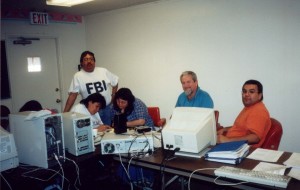
Naskapi translators at an MTT workshop in Catalina AZ, 2002
Over the years, many First Nations, Native American and translators from other minority language groups have improved their translation skills by attending these workshops. The Naskapi language team in particular has benefited by attending these–but unfortunately the workshops were discontinued after the last one was held in 2011, in Sydney Nova Scotia.
Even though some of the Naskapi translators had been to the workshops several times through the years (George, Silas, Seasi) most of participants had never been to one, and needed to start at the beginning. A very good place to start.
First Nations Translators from across Canada
It’s expensive to travel in and out of the North, and plans were already being made last fall to secure funding for the participants to come together this spring in Guelph. The Anglican Healing Fund provided a significant portion of the money needed to pay the airfare and accommodations for most of the Naskapi and Oji-Cree translators to travel from their communities. Although our intention was to include translators from several different language communities, in the end only three translation projects were represented at the workshop: Naskapi, Oji-Cree, and Plains Cree.
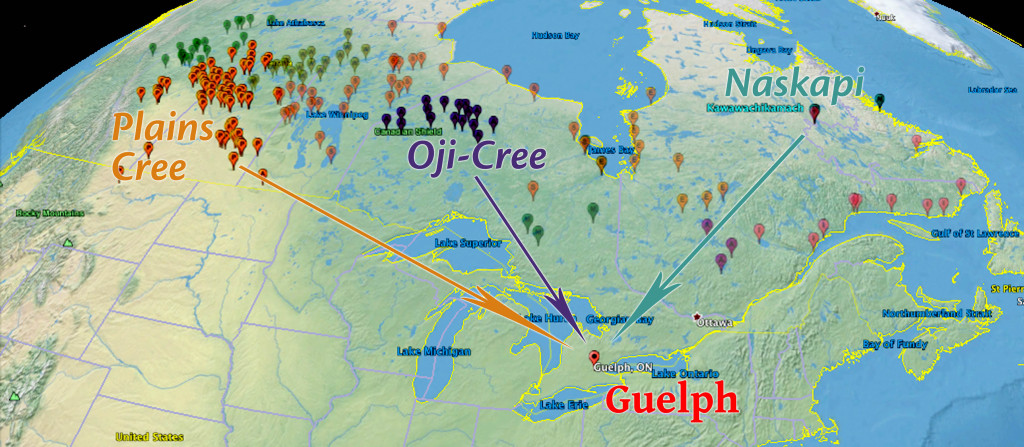 Besides the translation team from the Naskapi translation project (six persons: Silas Nabinicaboo, Tshiueten Vachon, Amanda Swappie, Medora Losier, Kissandra Sandy and Kabimbetas Mokoush), the Naskapi school also sent along a Naskapi language teacher Seasi Swappie and their curriculum development technician Jessica Nattawappio.
Besides the translation team from the Naskapi translation project (six persons: Silas Nabinicaboo, Tshiueten Vachon, Amanda Swappie, Medora Losier, Kissandra Sandy and Kabimbetas Mokoush), the Naskapi school also sent along a Naskapi language teacher Seasi Swappie and their curriculum development technician Jessica Nattawappio.
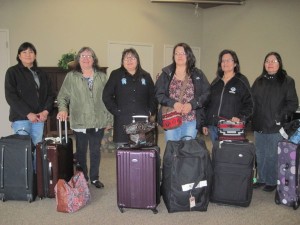
Oji-Cree translators from Kingfisher Lake
The Naskapi Nation sent their senior translator George Guanish, and Cheyenne Vachon, the project coordinator for Status of Women in Canada for the Naskapi Nation and church lay-reader.
The newly-formed Oji-Cree translation committee selected five persons from the Kingfisher Lake community to be trained as translators: Ruth Kitchekesik, Zipporah Mamakwa, Jessie Atlookan, Theresa Sainnawap, and Ruth Morris. Bishop Lydia Mamakwa accompanied them on their first day.
The Plains Cree translation project sent one of their translators, Gayle Weenie.
A Full and Varied Schedule
Each day of the workshop began with hymn singing in Cree, which is a language through which much of the sacred music tradition came into First Nations churches across Canada. We took into account language differences, learned to sing one anothers’ favourite songs, and also learned something about the linguistic relationships that connect the language varieties that were represented.
We also had daily devotions, reading the Bible (when the translation was available) in the languages that are represented, and having a short Bible study.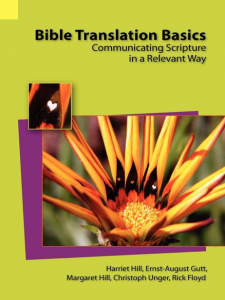
The first session every morning covered Bible Translation skills. The learning alternated between using lessons from “Bible Translation Basics: Communicating Scripture in a Relevant Way” which focuses on communication theory, and modules from “Bible Translation Principles” which focuses on distinguishing the “form” from the “meaning” of the message. Each of these resources were useful to help learners understand the translation task and to help them gain the skills they need to do it.
Each day after the lunch break we had basic training in the use of the collaborative translation software program ParaTExt, which assists translators by providing source translations and resource documents as well as tools to assist them in translating into their own language and checking their work. Most of the participants had never used this software, so we were careful to start very gradually.
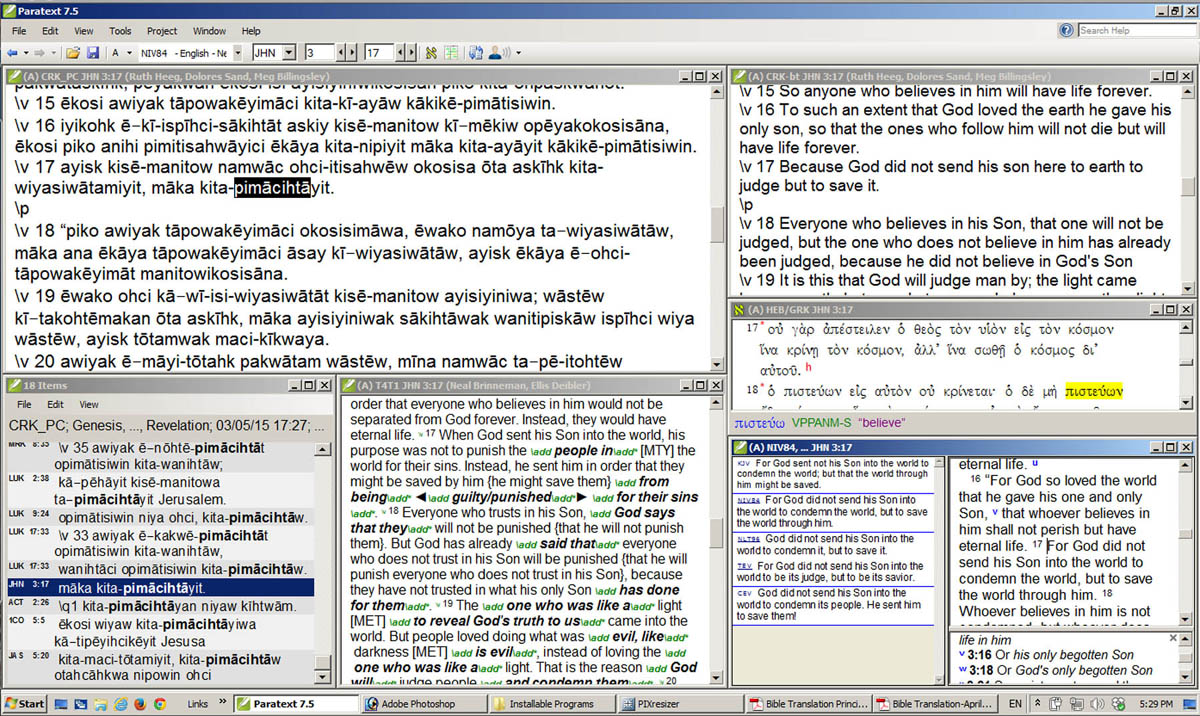
Plains Cree Translation in ParaTExt
Also, the entire Oji-Cree team received a set of five new laptop computers to bring back to Kingfisher Lake with them, along with a new printer and data projector for their translation committee. This needed equipment was provided thanks to support from the Canadian Bible Society translation office. They received training in keyboarding in their own language, and some basic computer skills for beginners.
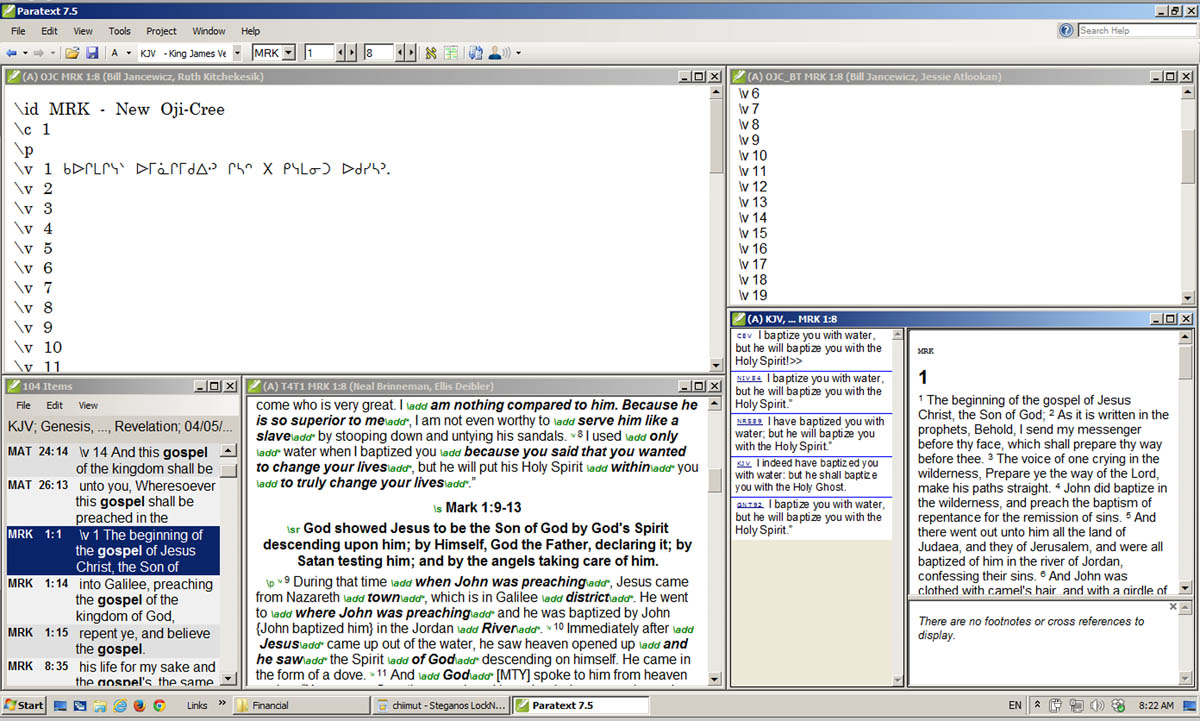
The New Oji-Cree translation in ParaTExt
Other modules covered throughout the week included such topics as “From God to Us: Bible Translation and History”, “Planning the future of our language”, “The Algonquian Language Family” and the importance of personal Bible knowledge for translators.
Preparing for a “consultant-check”
During the whole workshop, the participants all learned something about the process of Bible translation–but simply getting the message into the words of your own language is just the beginning. Tuesday of the workshop we focused on some of the next steps that are necessary after a “first draft” is produced.
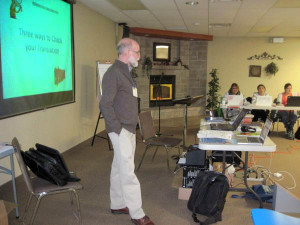
Steve Kempf teaches about translation checking
Steve Kempf, a certified translation consultant with SIL International (Wycliffe Bible Translators) who has had many years of experience and specializes in Old Testament source material came to be with us Tuesday, and presented two modules about the necessity and procedure for checking a translation. He covered working together as a translation team and the importance of thoroughly checking the naturalness and clarity of a translation with other speakers of the language throughout the community. He provided methods and examples of how to do this on a regular basis as sections of a translation are written.
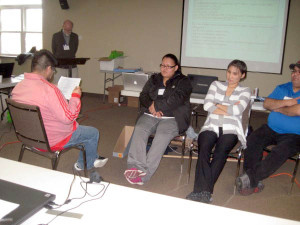
Naskapi translator Tshiueten Vachon, checking Exodus with consultant Steve Kempf, and team-members Amanda Swappie, Jessica Nattawappio, and George Guanish
He also provided a “live” demonstration of some of the ways that a translation consultant like himself works with the translation team to help them to ensure that the translation is both accurate (faithful to the original) and acceptable (how the readers perceive a translation as trustworthy). To do this, the Naskapi translation team provided him with their draft translation and a back-translation (a literal translation of the Naskapi back into English) of the book of Exodus, one of the current active Naskapi translation projects. After examining the translation during the weeks before the workshop, Steve conducted a consultant-checking session with the translator and other Naskapi participants as a demonstration to the rest of the workshop attendees of what to expect when a consultant comes to check their translations.
Encouraging Connections
The workshop participants were not only encouraged by each other, finding that their vocation of Bible Translation into their own language was shared by speakers from other First Nations language communities from across Canada,
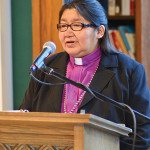
Bishop Lydia Mamakwa
but also we were visited by church and organizational leaders who are counted as partners and friends of the First Nations Bible Translation movement. Bishop Lydia Mamakwa, the first bishop of a new indigenous diocese in the Anglican Church of Canada, the Indigenous Spiritual Ministry of Mishamikoweesh, accompanied the new Oji-Cree translation team from the community of Kingfisher Lake in northern Ontario. We were pleased to have her encouragement and fellowship for the first full day of the workshop on Monday.
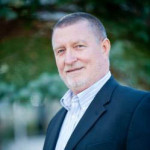
Dr. Myles Leitch
Dr. Myles Leitch, the newly appointed Director of Scripture Translation for the Canadian Bible Society, came to observe the workshop and greet the participants on Wednesday morning, staying for lunch and connecting with some of the workshop organizers and facilitators. The Canadian Bible Society played a significant role in seeing that this workshop was a success, by making arrangements for the venue and providing on site technical and administrative support. Sharon Peddle and Tom Ortiz from the translation office assisted during the week, and Bible Society translation consultant Ruth Heeg participated and provided her help and input for the entire workshop.
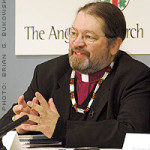
Rt. Rev. Mark MacDonald
The Right Reverend Mark MacDonald, the National Indigenous Anglican Bishop, visited the workshop on Wednesday afternoon and encouraged the participants in their work. He reminded us all that the Bible is a “…sacred book, a miraculous book, (ᐁᒫᒪᐦᑳᑌᐣᑖᑿᐦᐠ ᒪᓯᓇᐦᐃᑲᐣ e-maamahkaatentaakwahk masinahikan) that changes people’s hearts and minds. It is a living thing. When something is translated into another language, usually something is lost. But the Bible is the only thing that the more you translate it the more you get. So when we translate it into our languages you know more about God. When I tell you what Jesus has done in my life, you know more about Jesus.”
He also told the participants that it’s just not their own communities, but that people all across the land are really excited about this workshop, and are supporting and praying for them. He said that it is his hope that it will grow and grow until every First Nations community across the land is doing what they are doing–that the participants in this workshop are the ones “breaking trail”, and making the way for the others to follow.
Fellowship and fellow-SHOP
Most of the workshop participants come from home communities that are very remote in the far north of Canada. Indeed, even though they traveled by air, it took most of them two days to come to the workshop from where they live. So during their free time, arrangements were made for them to visit the local shopping mall and department stores–an opportunity that many readers of this report may take for granted but is impossible to do in the remote areas where the participants live. All the workshop participants gladly took advantage of this opportunity and were able to get many things that they have been saving up for or special gifts or treats to bring to family back home.
We also enjoyed a dinner “out” at a local Chinese buffet restaurant together, another treat that was very deeply appreciated by all the participants and the facilitators.
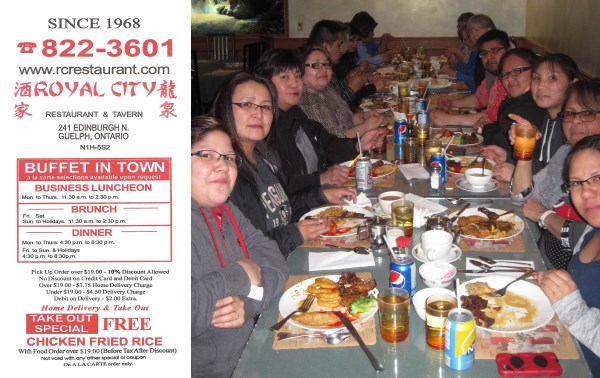 On Friday, the last day of the workshop, we took some time to reflect and evaluate the workshop program, and all the participants provided feedback for the organizers to consider for the next workshop. Here is a sampling of some of the participants’ comments:
On Friday, the last day of the workshop, we took some time to reflect and evaluate the workshop program, and all the participants provided feedback for the organizers to consider for the next workshop. Here is a sampling of some of the participants’ comments:
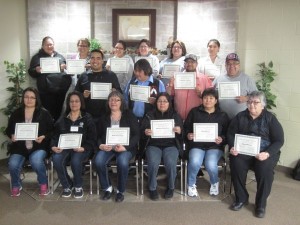 “I feel more encouraged and refreshed in my job as translator.”
“I feel more encouraged and refreshed in my job as translator.”
“I felt that I have helped other in starting their own translation projects.”
“I have learned some great ideas for how translation goes; for example, what materials and helps are available to use.”
“I felt blessed to involve myself in this workshop: meeting different Nations and learning about similar cultures and languages to my own. I liked the teamwork, involvement and singing together the best.”
“I felt that I learned that there was more that I could do for my community.”
All of the participants indicated that it was a privilege to come and would definitely want to come to future workshops to learn more.
At the end of the last session the participants were awarded certificates of completion, and the workshop was closed with hymn singing in Cree, prayers and good-byes.
Many thanks to all of you who faithfully prayed for us all during this workshop, to all who contributed their time, expertise, and money to make this workshop a success and inspiration for all who attended. We would like to especially thank the congregation at Harvest Church in Byron, Georgia, USA for their generous support to the Wycliffe Bible Translators’ “Western Cree Partnership” project, which supports this initiative to build Bible translation capacity in First Nations communities in Canada.
Serving with you, Bill and Norma Jean
PS: We include a collection of photographs below taken throughout the workshop.
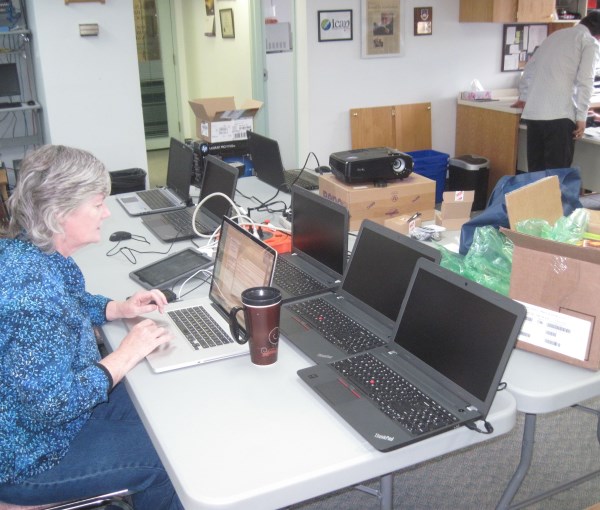
Norma Jean with the new computers being configured before the workshop
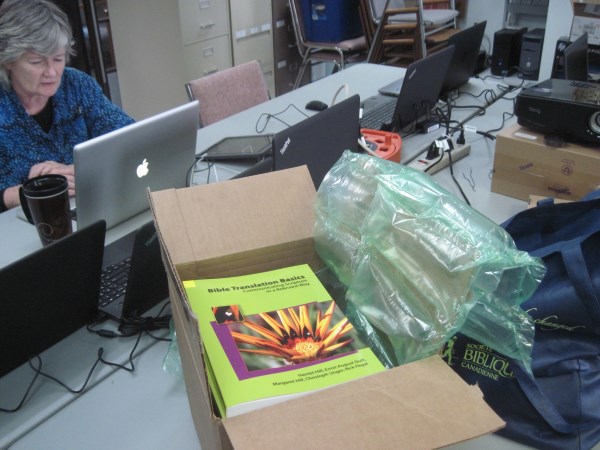
Gathering all the workshop materials at the Bible Society translation office
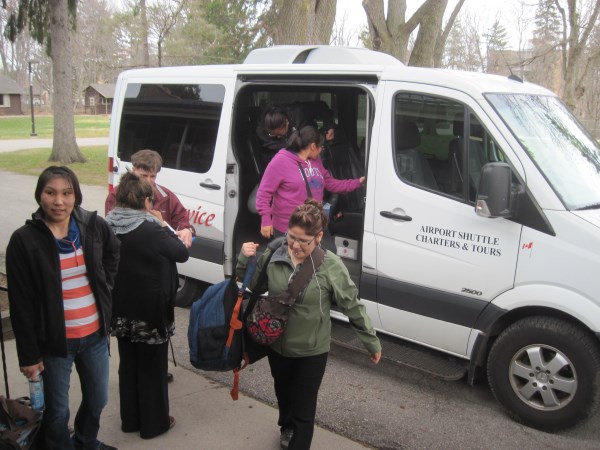
The Naskapi team arrives in Guelph from the airport
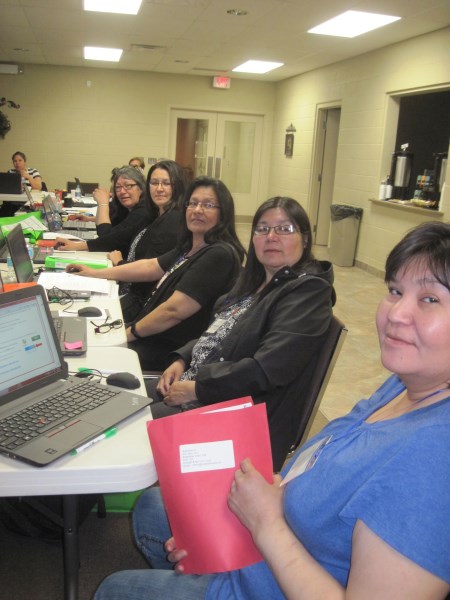
The Oji-Cree translation team: Ruth K, Theresa, Jessie, Zipporah and Ruth M.

We brought Lydia to the airport on Monday evening
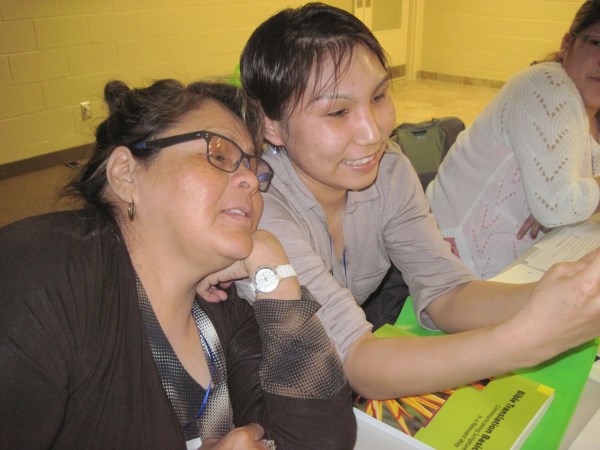
Seasi and Jessica from the Naskapi School
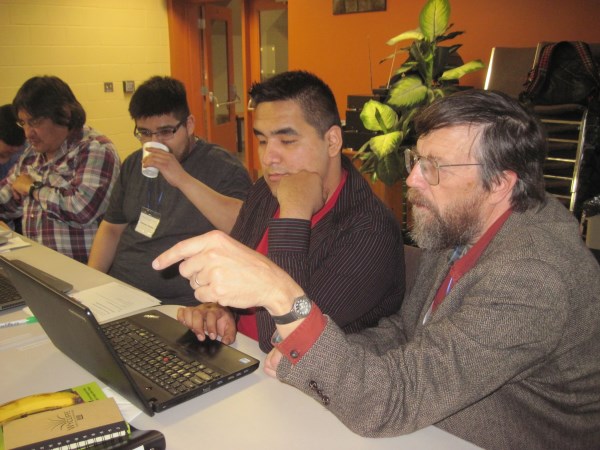
Bill shows Kabimbetas and Tshiueten how to use ParaTExt
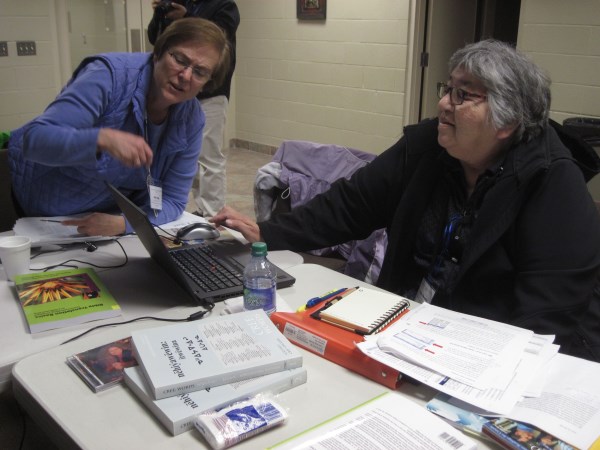
Ruth Heeg helps Gayle with Plains Cree
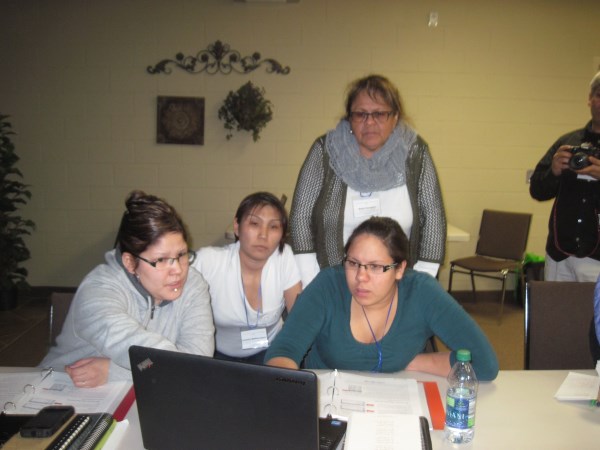
Seasi and Jessica learning with Kissandra and Medora
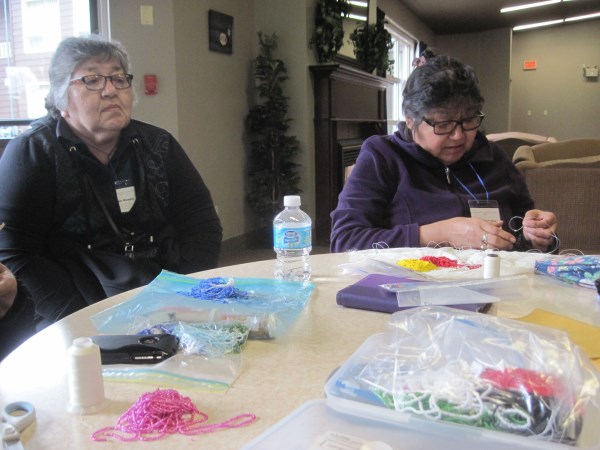
Gayle and Lydia–Handcrafts after the workshop
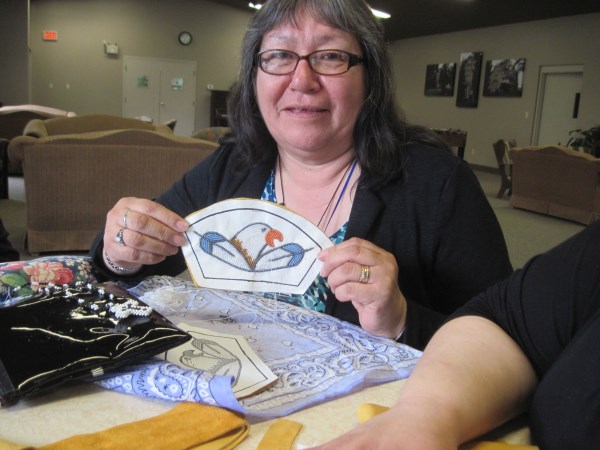
Ruth K–Handcrafts after the workshop
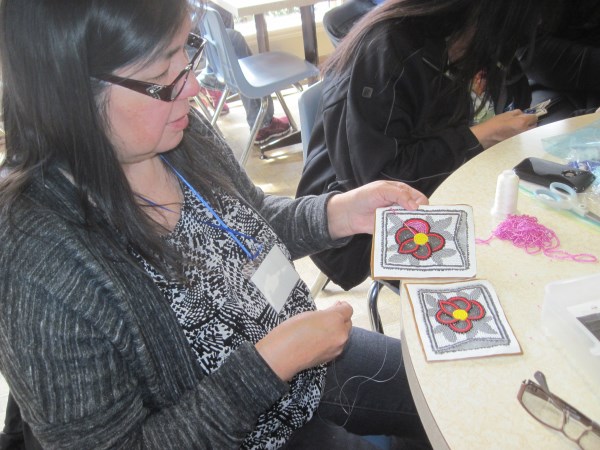
Zipporah–Handcrafts after the workshop
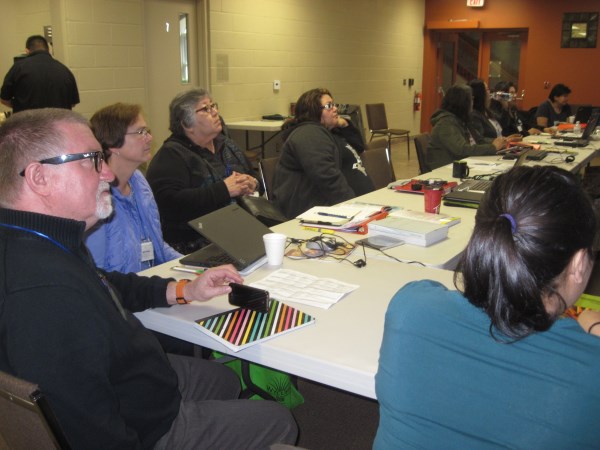
Myles Leitch observes the workshop on Wednesday morning
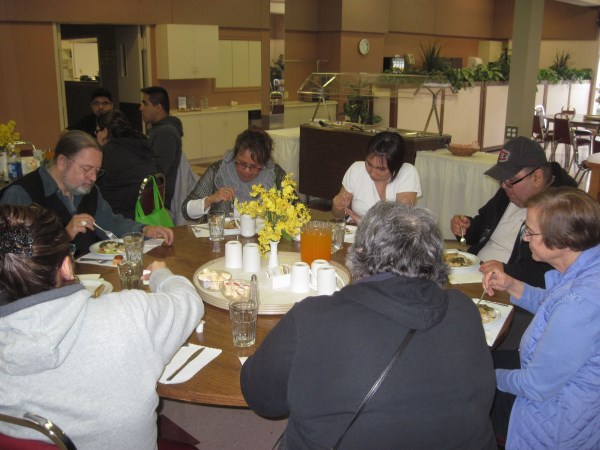
Bishop Mark at Wednesday’s supper
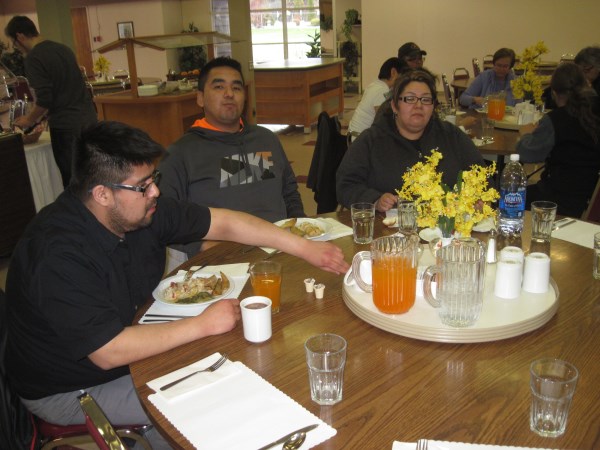
Tshiueten, Kabimbetas and Cheyenne at mealtime
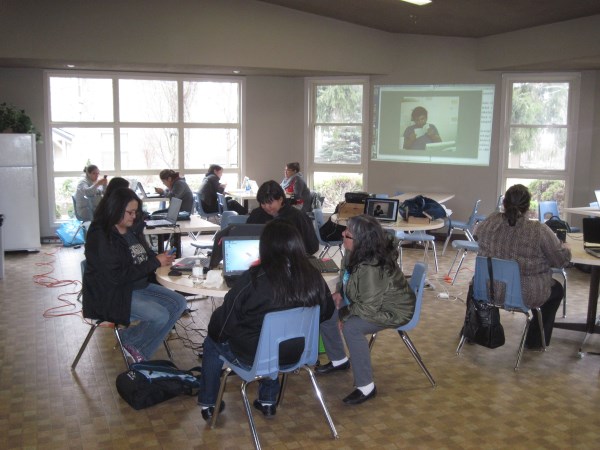
Learning to work together on the Internet (in the lounge)
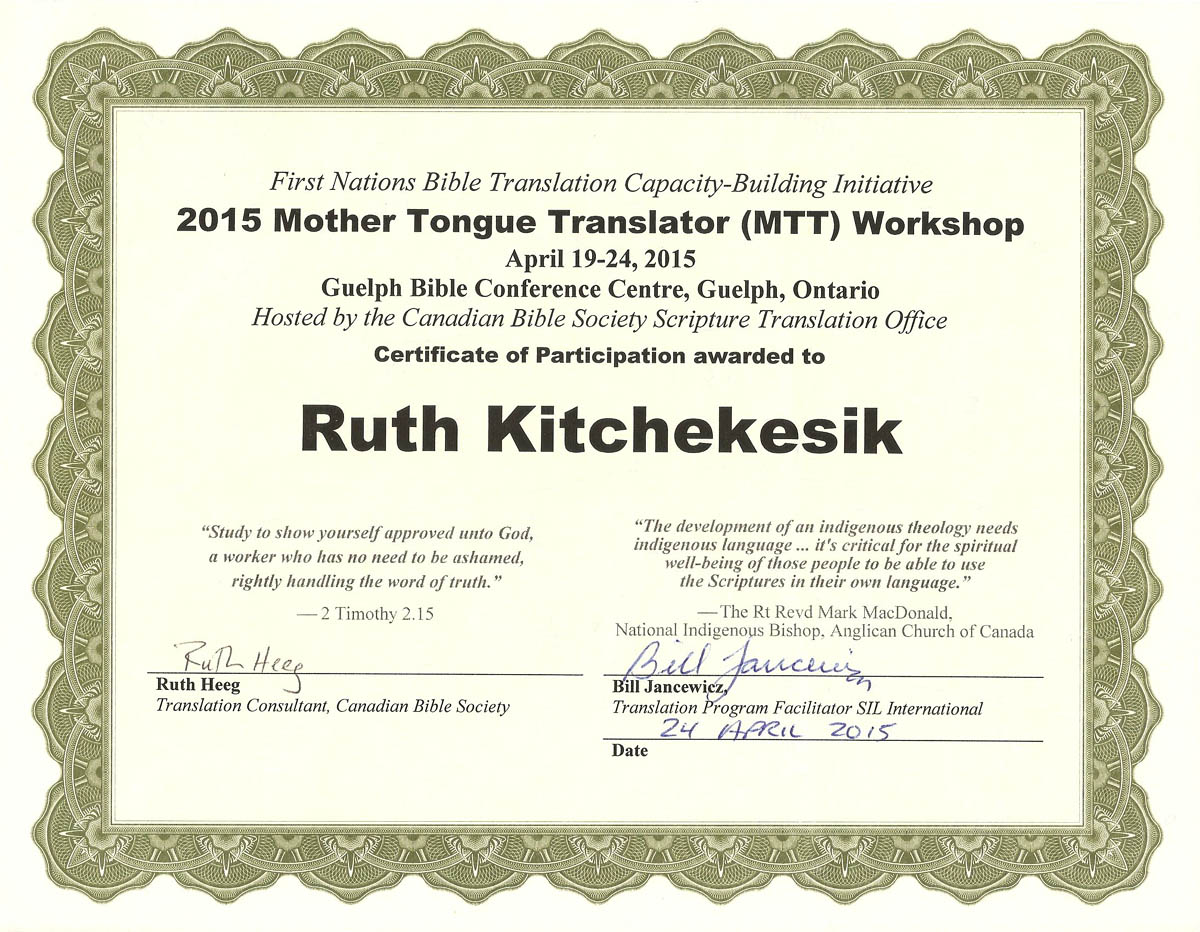
All the participants received certificates
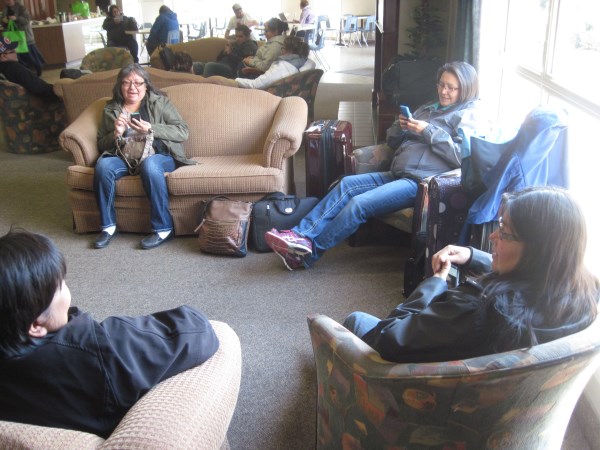
Waiting for the long trip home

